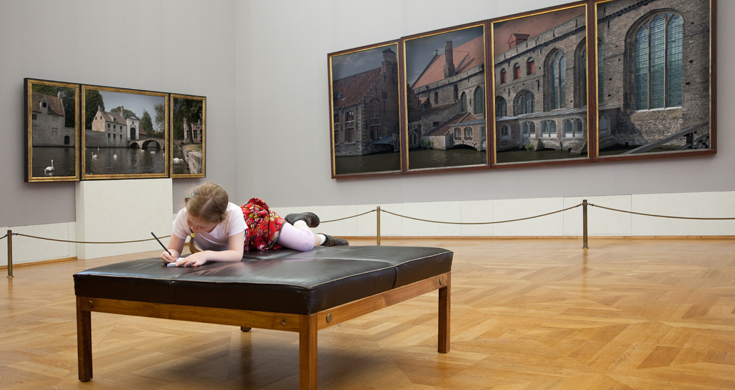For decades, educators have expressed concerns about the high level of learning loss experienced by many students during summer vacation, and they’ve stressed the importance of summer learning. More specifically, research has shown that students can fall two months (some experts say five months) behind their peers in classroom skills if they haven’t engaged intellectually during the summer. As a result, many students spend the first months of the school year just trying to catch up and recover forgotten knowledge from their last semester.
Combating Learning Loss with Summer Activities
The issue of summer learning loss has caused some educators to advocate a year-long school system, while others argue that the education gap can be diminished by parents continuing their children’s education through various activities during vacation time.
Significantly, a large number of studies have shown that kids in grades K–12 who are exposed to cultural activities away from school—activities such as going to museums and concerts—show an improvement in critical thinking, cultural understanding, and social tolerance. In addition, studies show that this type of exposure to the arts has resulted in improved test scores in reading and math as well.
For example, a recent two-year study published in March 2018 shows that children who were taken to see live theater performances came away with significant education benefits—including higher levels of political, social, and cultural tolerance, as well as a higher understanding of social perspectives. Interestingly, the study also examined students who had seen movie versions of the same plays; and while students who saw the live performances benefited significantly in these areas, students who saw the movie versions did not.
Likewise, similar studies found that children who took trips to art museums came away with advanced critical-thinking skills—and many of the students afterward expressed an interest in visiting more art museums in the future.
Unfortunately, while cultural stimulation is an effective way to combat learning loss, it isn’t always financially feasible for some families. A report released by the Department of Education in May 2018 shows that almost two-thirds of students from higher-income families spent some of their summer vacation time in historical sites and museums, compared to only a third of students from poorer households. Likewise, a third of higher-income parents reported taking their children to plays or concerts during the summer, compared to only 15 percent of parents from lower-income backgrounds.
How Parents Can Enrich Vacation Time for Their Children
What can parents learn from this research? The most significant takeaway is the concrete fact that children can benefit significantly from a variety of cultural experiences during their time away from school. These can include visits to art and history museums, as well as trips to concerts and plays, and visits to natural history venues such as zoos and botanical gardens.
Fortunately, a number of museums have special events—and even special cut-rate fares and free days—during the summer months. Likewise, a number of museums—such as The Miami Museum for Children and the Boston Children’s Museum—cater specifically to children, while others have rooms and exhibits specially created to attract young people.
Other options for summertime learning can include petting zoos, aquariums, historic sites, and interactive venues such as science museums, where children can participate and learn while being entertained at the same time.
For parents, a summer roster of cultural activities, shared with their children, can result in a valuable bonding experience. Likewise, for children, a summer spent participating in these venues can instill the beginnings of a lifelong love for the arts as well as a better, more-rounded understanding of the world around us.





































